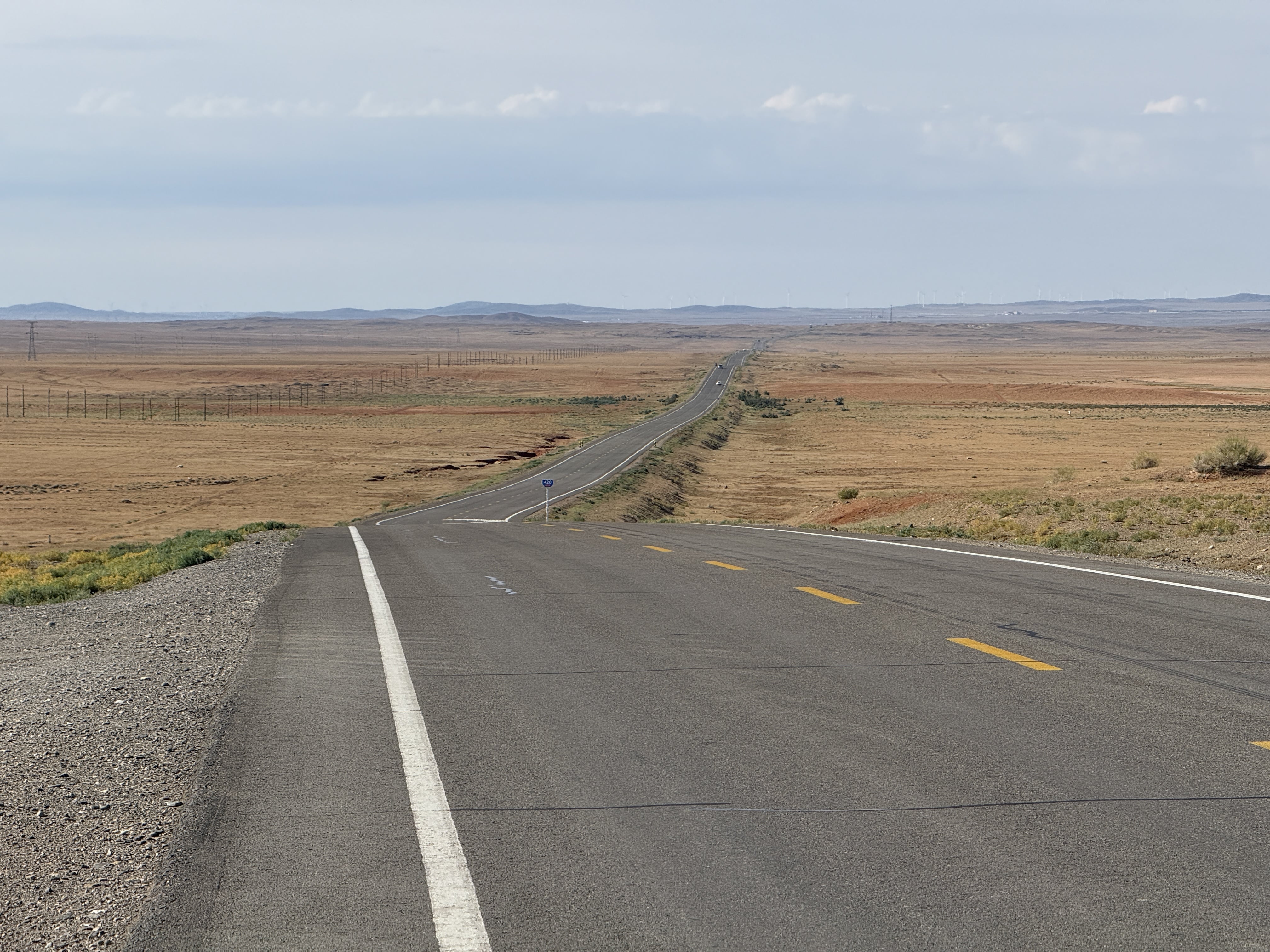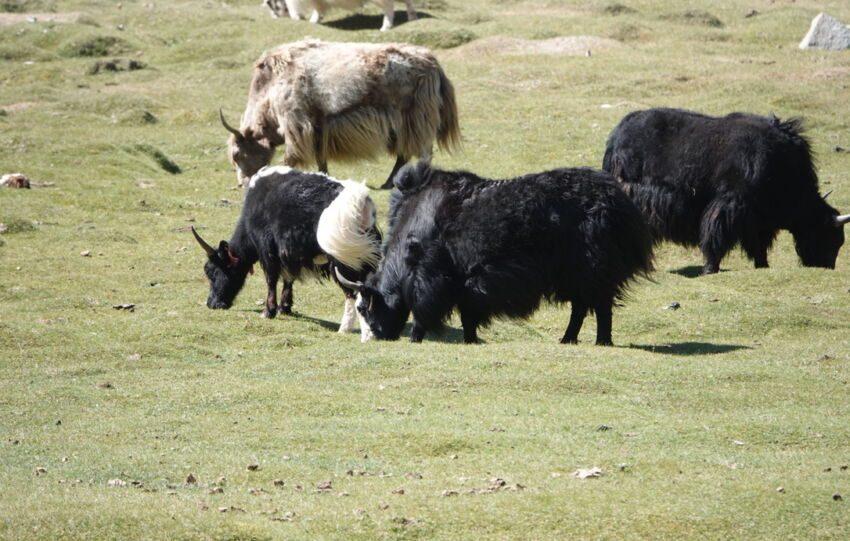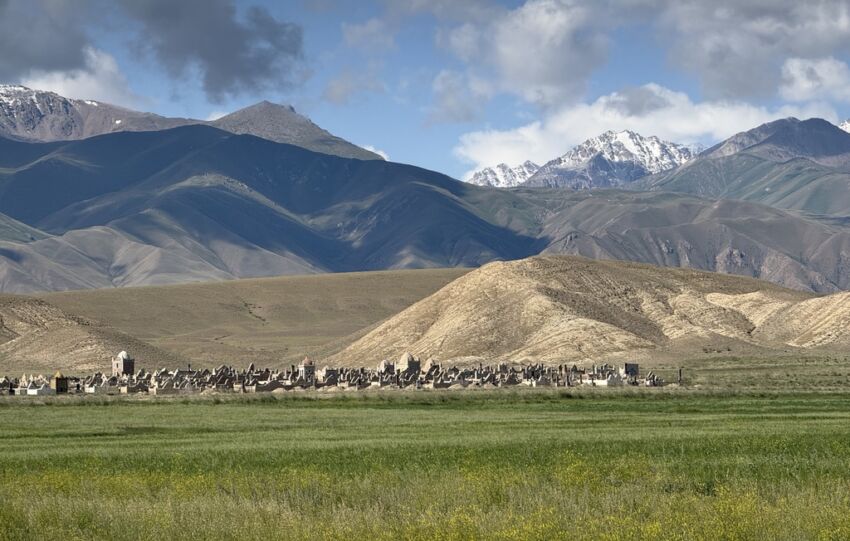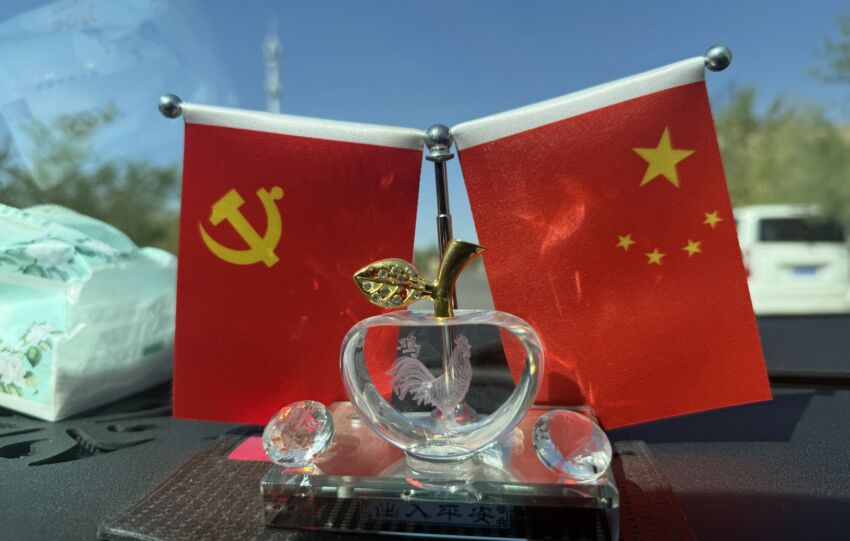A desert area
Share This Article
From Tuesday, August 5 to Tuesday, August 12, from Ürümqi to Takeshiken, a city in Northwest China
Getting out of town
Tuesday, August 5th, after 3 days in the city of Ürmqi, we leave the city and take the northern road to reach the border of Mongolia, located 500km away. Leaving a city of 5 million inhabitants is always very long; it will take us no less than 40km to reach uninhabited areas. After about 50km, we enter a desert area. This is the Chinese steppe; nothing grows outside the few oases we will encounter during these 500km.
We’re staying in the town of Fukang, the hotel is comfortable. The little town is pleasant, and the evening menu includes cold and spicy pasta. It rained today, so a little refreshment is nice.
Kazakh village with some scares
After a very quiet night, we leave Fukang and now drive into the desert area. Villages are few and far between and sparsely populated. After a long day, we stop in a small Kazakh village to find a campsite. We are welcomed by the locals who insist on offering us food, and it is opulent. In this village, activity revolves around oil wells and agriculture, especially livestock. After an interminable photo shoot, we settle into an uninhabited house. A somewhat restless night, as children come to play and tap on the windows of the house, and in the pitch-black night, we have a few jumps of fear.
New town and power plants everywhere
After a relatively calm night despite our disruptive forces, we continue our journey through an extremely arid area with high temperatures and a constant uphill slope. A relatively quiet day that we end in Wucai Wanhzen. A new city built in the desert around coal-fired power plants, there are about twenty of them. It has avenues three times as wide as the Champs-Élysées in Paris. We stay for a ridiculously low price in a very luxurious hotel. The people are friendly, a taxi driver takes us to the city center for free. The police pay for the gas for our kitchen stove. A pleasant and very peaceful end to the day.
Still as deserted
After crossing the industrial zone where the coal-fired power plants are built, where the omnipresent police check us, we continue our journey, in this no man’s land. The next 300 km before the border are completely deserted, with two oases and their villages. A day to the rhythm of truck horns. Wildlife is very present, such as Asian wild donkeys, goitered gazelles, and small rodents. After more than 100 km and having faced a strong headwind, we settle in Taheerbasitao in an area abandoned by its inhabitants. The gas station must have closed long ago. The only remaining business is a small roadside restaurant that strangely did not want to serve us. We camp under the porch of an abandoned house, sheltered from the wind and surrounded by all the trucks that stop in the parking lot to sleep.
The next day we continue to drive through the same scenery. We stop for two nights in the only hotel on our route, in Quiaku’ertzhen. The owners are friendly and they offer us so many watermelons to eat that I don’t think we’ll eat any soon. A rest time that allows us to recover from our efforts.
The border is approaching
It will take us two more days in this arid, desert landscape before reaching Takeshiken, the last town before the Mongolian border. We spend one last evening in China around a good plate of pasta, as the Chinese know how to make them. We will miss these pasta dishes.
Met :
A week without seeing a single cyclist, but we had the pleasure of meeting Kazakh families in their village.
Our journey : We covered 583 km over the course of 8 days. You can follow our journey continuously by clicking on the map here or by consulting the map on our blog.
We liked in China:
- food and especially noodles
- the kindness of people
- The presence of public toilets everywhere
- Gigantism is everywhere: the width of avenues in cities, the length of trucks, the size of cities.
We liked less:
- The nauseating smell of public toilets
- people who spit everywhere
- very spicy and cold cuisine
no images were found




